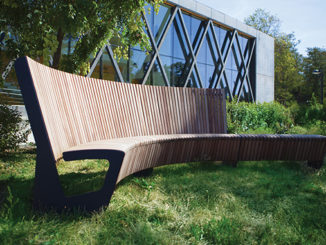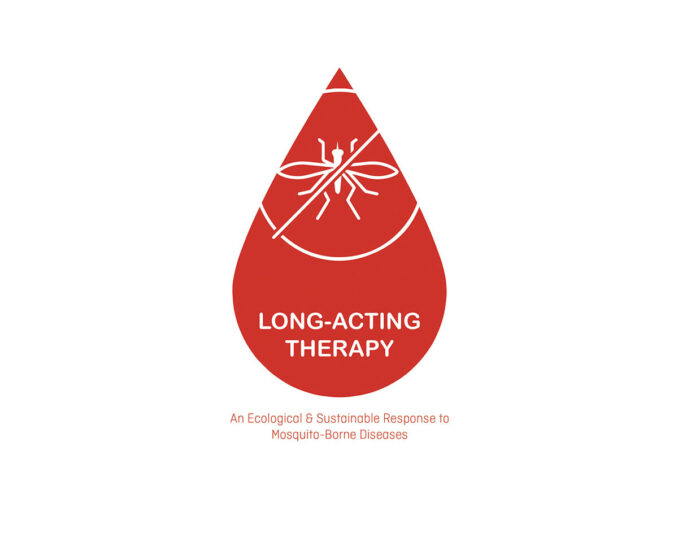
LONG-ACTING THERAPY is an experimental landscape architecture intervention system, that is designed to respond to the widespread epidemic of mosquito-borne diseases (MBDs). Mosquitoes, as viral vectors, spread dozens of pathogens, and more than half of the world’s population is under the threat of mosquito-borne diseases (WHO, 2019). Sustained mosquito control efforts are important to prevent outbreaks of these diseases. However, in recent decades, the environmental changes brought by rapid urbanization and globalization are expanding mosquito habitats than ever before. The flexibility of this project makes it highly possible to be practiced against MBDs across a wide area.
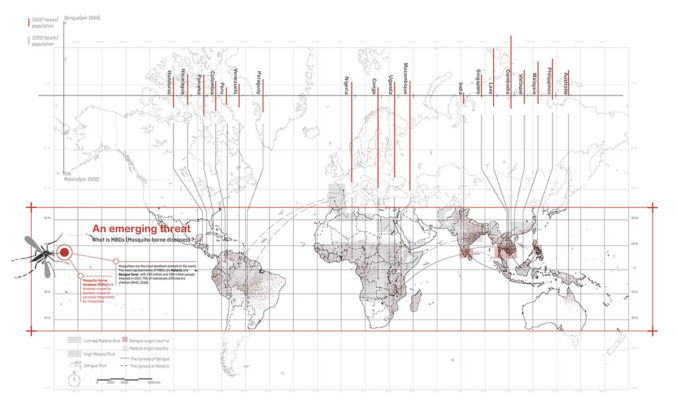
With more and more fields being devoted to responding to MBDs, such as medicine, biochemistry, entomology, etc., Landscape, as the largest living carrier for mosquitoes, is expected to solve or alleviate many of MBDs issues to a certain extent. A large number of existing evidence shows that in the urban ecosystem, whether it is microclimate change, biodiversity, rainfall-runoff treatment, human behaviour, etc. can aggravate or weaken the expansion of mosquito-borne diseases in the city, which are important factors affecting mosquito population outbreak.
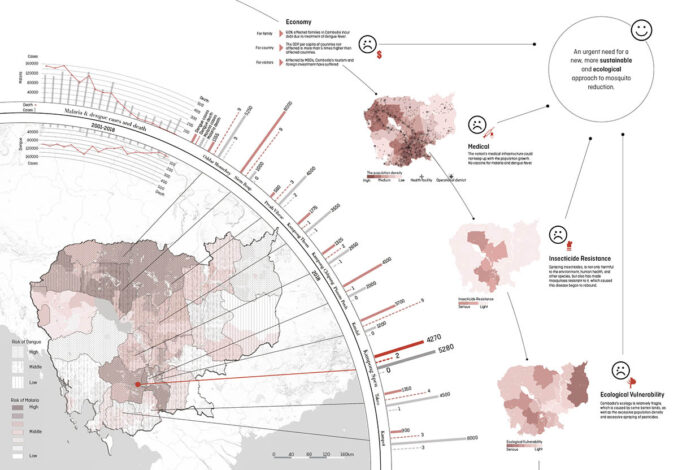
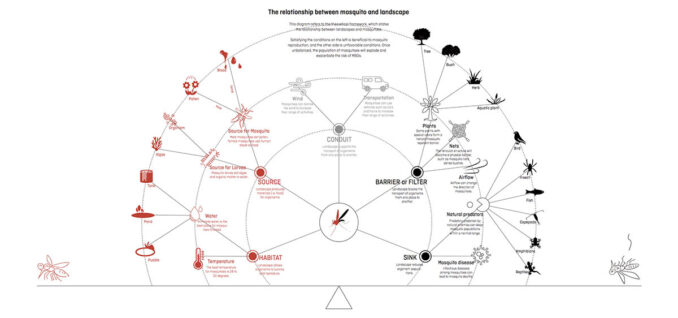
LONG-ACTING THERAPY selects Krong-Chbar-Mon as the pilot town as well as a typical case in Cambodia to implement this new sustainable landscape system. In Cambodia’s long-term confrontation with MBD, excessive spraying of pesticides has caused ecological damage, species withering, human health problems, and also has made mosquitoes resistant to pesticides, which caused MBDs began to rebound. The country therefore urgently needs a new eco-solution. This project is to be utilized by the Center for Disease Control and Prevention (CDC) to demonstrate a more ecological and sustainable landscape system to combat the spread of mosquito-borne diseases compared with existing local drug mosquito-killing methods in Cambodia.
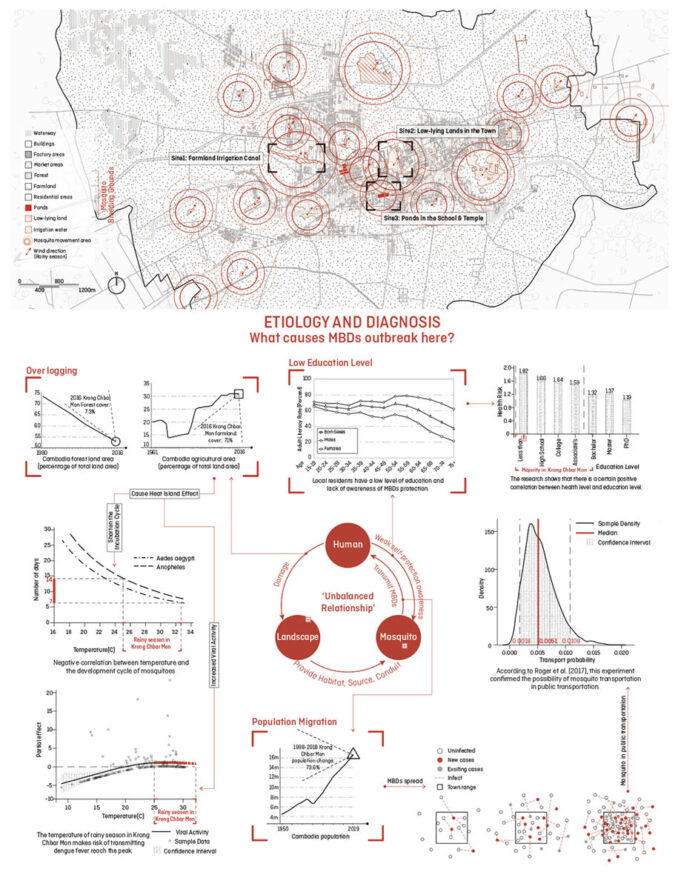
Interventions for the long-acting therapy will be carried out in cooperation with the Cambodian government, CDC, the monk network, and local communities. This participatory design will be based on the three phases of MBDs, namely SOURCE, TRANSMISSION, and HUMAN BEHAVIOR with the approaches of
-reducing mosquito breeding grounds by the techniques of fish banks and low-lying land planting
-establishing ecological isolation belt with mosquito repellent plants against mosquito flight paths
-building a widely distributed, highly timely, high-participation MBDs response system.
Among them, community involvement will establish an emotional bond between the landscape and residents, thereby enhancing the maintenance and management of the system.
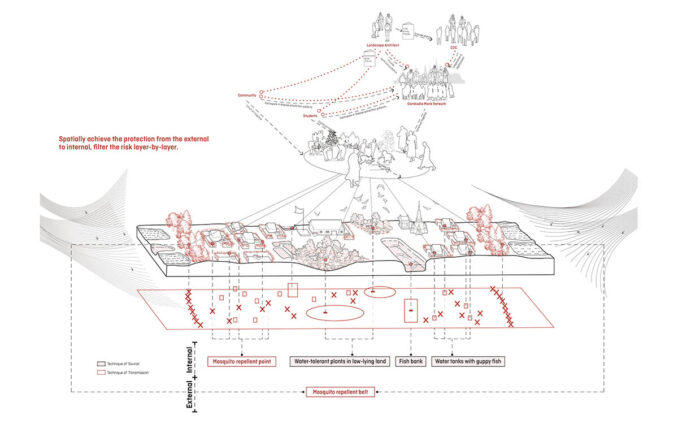
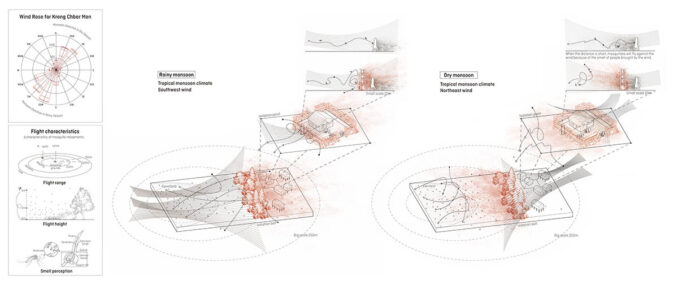
In this project, based on expertise in engaging people to create and maintain urban spaces, and interdisciplinary theories in biology, ecology, entomology, and geography, the landscape architect will provide a complete proposal for this project, including the practice of landscape design, the deployment guide of the network of personnel, and the framework of the project vision.
After the primary achievement, the community’s resilience to MBDs will be improved and peak in the post-MBDs period which also reduce the medical burden and further liberate family productivity to promote socio-economic. The ambition of the project will gradually be reflected in this period, that is, the improvement of urban ecology, the large-scale return of species, as well as the self-regulation of people, mosquitoes, and landscapes that exist in a safer coexistence relationship.
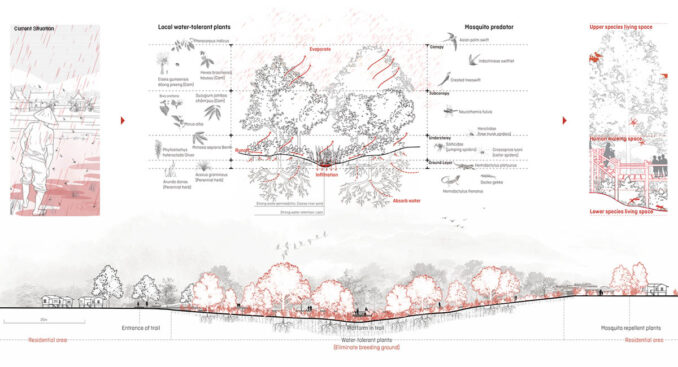
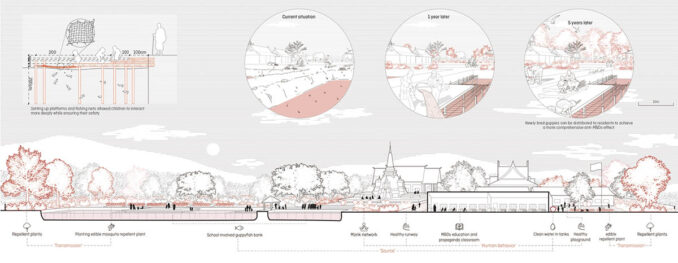
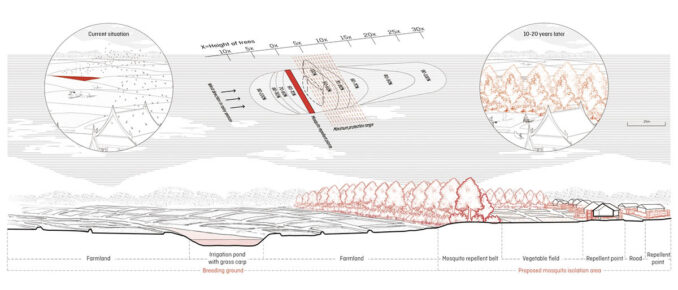
As the project is exploring a relatively vacant field, the available evidence that can be used for reference is relatively limited. Some practices have proved effective, but have not been scientifically confirmed. At present, research on this topic is gradually heating up, and some new technologies have already been implemented. In the future, some new ideas will likely appear to complete or challenge certain aspects of the project, and this will become one of the constantly updated motivations of LONG-ACTING THERAPY.
Image Credits: Yueying Zhang
Project Credits
Student: Yueying Zhang, RMIT University
Tutors: Adam Gardner, Gary Fang, Kyle Bush
Project Coordinator: Dr. Charles Anderson

